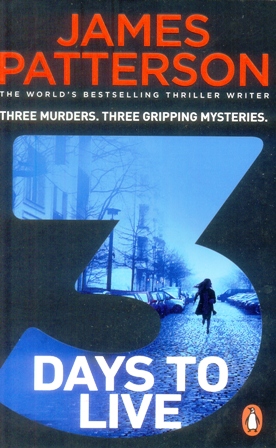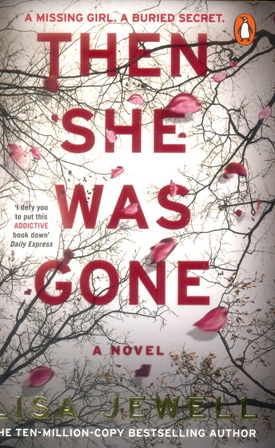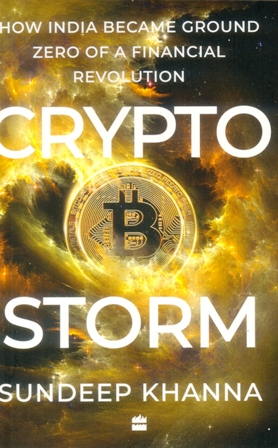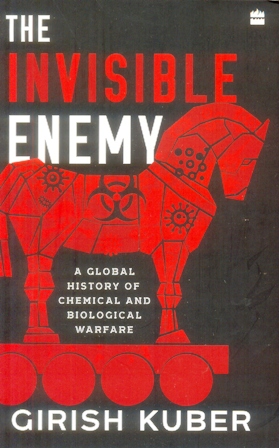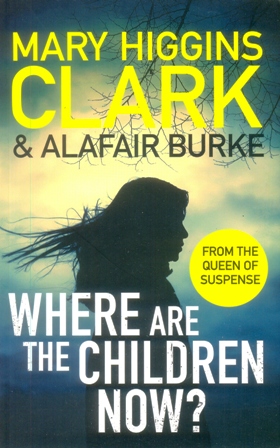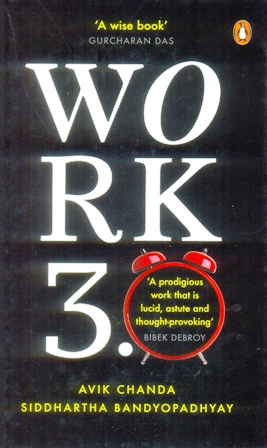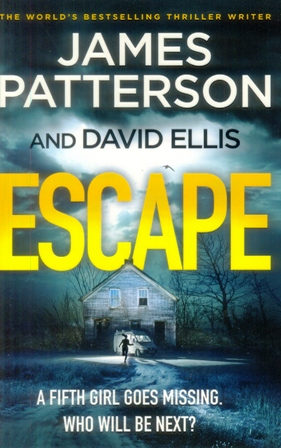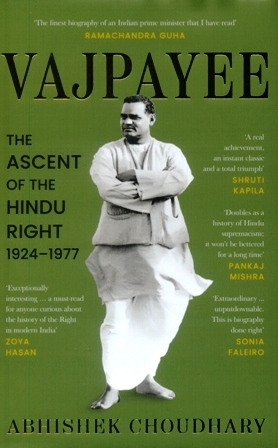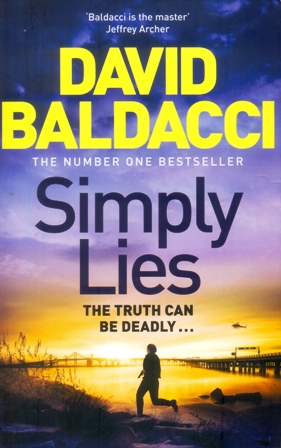-
Second Chance Christmas
Christmas wishes can come true
-
Dynasties-The Danforths
Tested by scandal. Sustained by passion. Tina Alexander wanted her wealthy playboy neighbour gone–he was too much of a distraction. But Reid Danforth, one of Savannah's most eligible bachelors, had other plans for the curvy beauty! But passion had a price. If word spread, their scandalous affair would ruin both their reputations. • U.S. Navy SEAL Zack Sheridan is not accustomed to baby-sitting sharp-tongued, wealthy young women like Kimberly Danforth. But a month of having to shadow Kimberly's every move means Zack is soon having trouble reconciling his duty with a sudden burning desire… • Three years ago, Jake Danforth spent a steamy, sheet-twisting night with Larissa Nielsen. He'd never forgotten her–even though Larissa had left him before the morning light. But Larissa has kept a secret from Jake, one is about to come face to face with…
-
12 Days Of Passion
On the first night of Christmas… Vanessa Harrison's holiday spirit goes from humdrum to armed and dangerous when she is an eyewitness to a crime. Spirited away to a Caribbean hideout for her safety, she isn't prepared for her instant attraction to gorgeous, take-no-prisoners FBI agent Kendrick Boudreaux. Soon her vow to never trust another man melts in the heat of Kendrick's sizzling embrace… · Everything schoolteacher Morgan Hill loves is in her hometown of Temptation, Virginia―her twins, her students and the charming community centre where she’s staging their holiday play. But now the building’s new owner, Grayson Taylor, is putting sexy visions into Morgan’s head, making the young widow long for a future even Santa couldn’t deliver… · Getting married means Prince Andres of Petras can erase his past―albeit pleasurable―sins. But his prospective bride Princess Zara has spent years hiding her untouched heart. Her convenient husband-to-be soon works his playboy charms and awakens a sensual longing that’s impossible to resist. But once Zara's given him her hand and her body, it won't be long before he has her heart…
-
Snowflakes And Seduction
A Christmas affair Sam Henry never got over the loss of his wife and son, and he's shut himself off from happiness, love...and the holidays. But Joy Curran and her sweet daughter bring laughter into his life and living with his new maid ignites a passion he can't ignore. After one glorious night in Joy's arms, will this beauty be the Christmas miracle that changes the beast forever? * Tall, dark and incredibly handsome, Nixon Gaines has a reputation for mixing business with pleasure. Especially with someone as captivating and intelligent as Jade Chandler. Jade is determined to stop the self-made millionaire from stealing her family's company...but his mind-blowing kisses test her resolve. Can the beautiful executive risk opening her heart for the holidays? * When millionaire Chaz Monroe goes undercover at the ad agency he bought, he has to figure out why his star employee, Kim McKinley, won't work on the crucial Christmas campaign. He'll go to any lengths to get answers from the beautiful go-getter-if he has to kiss them out of her, so be it. Will he unlock her secrets just in time for a Christmas she'll never forget?
-
A Christmas Night With Consequences
When chauffeur Keira Ryan accidentally drives her car into a snowdrift, she and her devastatingly attractive passenger must find a hotel…only to discover they’ll be sharing a bed! Luckily, billionaire Matteo Valenti takes it upon himself to show Keira just how to make the most of a bad situation—with the most sizzling experience of her life, that leads to one unexpected surprise! · Italian tycoon Vito Zaffari is waiting out the festive season at a snow-covered English cottage while a family scandal fades from the press. He’s determined to shut out the world, until a beautiful bombshell dressed as Santa literally crashes into his Christmas! Innocent Holly Cleaver sneaks under Vito's defenses until he can’t imagine Christmas, or forever, without her…
-
Virgin River - Tis The Season
Christmas magic in Virgin River 'Tis the season for family, friendship and a perfect holiday romance...
-
The Pursuits Of Lord Kit Cavanaugh
Bold and clever, THE CAVANAUGHS are unlike any other family in early Victorian England. #1 New York Times bestselling author Stephanie Laurens continues to explore the enthralling world of these dynamic siblings in the eagerly anticipated second volume in her captivating series. A Gentleman of Means One of the most eligible bachelors in London, Lord Christopher “Kit” Cavanaugh has discovered his true path and it doesn’t include the expected society marriage. Kit is all business and has chosen the bustling port of Bristol to launch his passion–Cavanaugh Yachts. A Woman of Character Miss Sylvia Buckleberry’s passion is her school for impoverished children. When a new business venture forces the school out of its building, she must act quickly. But confronting Kit Cavanaugh is a daunting task made even more difficult by their first and only previous meeting, when, believing she’d never see him again, she’d treated him dismissively. Still, Sylvia is determined to be persuasive. An Unstoppable Duo But it quickly becomes clear there are others who want the school-and Cavanaugh Yachts-closed. Working side by side, Kit and Sylvia fight to secure her school and to expose the blackguard trying to sabotage his business. Yet an even more dastardly villain lurks, one who threatens the future both discover they now hold dear
-
Boulder
Working as a cook on a merchant ship, a woman comes to know and love Samsa, a woman who gives her the nickname "Boulder." When Samsa gets a job in Reykjavik and the couple decides to move there together, Samsa decides that she wants to have a child. She is already forty and can't bear to let the opportunity pass her by. Boulder is less enthused, but doesn't know how to say no—and so finds herself dragged along on a journey that feels as thankless as it is alien. With motherhood changing Samsa into a stranger, Boulder must decide where her priorities lie, and whether her yearning for freedom can truly trump her yearning for love. Once again, Eva Baltasar demonstrates her preeminence as a chronicler of queer voices navigating a hostile world—and in prose as brittle and beautiful as an ancient saga.
-
The Twilight World
1944: Lubang Island, the Philippines. With Japanese troops about to withdraw, Lieutenant Hiroo Onoda was given orders by his superior officer: Hold the island until the Imperial army's return. You are to defend its territory by guerrilla tactics, at all costs. So began Onoda's long campaign. Soon weeks turned into months, months into years, and years into decades - until eventually time itself seemed to melt away. All the while Onoda continued to fight his fictitious war, at once surreal and tragic, at first with other soldiers, and then, finally, alone, a character in a novel of his own making. . . 'An enthralling novel that explores the nature of time and warfare with great mastery' Mail on Sunday 'Herzog. . .brilliantly blends fact and fiction in this fever dream of a novel' Daily Mail 'A literary jewel set to sparkle against the backdrop of his monumental career in cinema'
-
Shiva
Revel in the tales of the most enigmatic deity in Hinduism. This book is a hoard of the knowledge of the God of gods, who teaches about humanity, love, and companionship. He is the embodiment of the ultimate principles of creation, destruction, and transformation! Hanuman Chalisa is one of his best sellers. More titles by Shubha Vilas: Hanuman Chalisa, Mystical Tales for a Magical Life: 11 Unheard Fantastic Vedic Stories Explore the world of the ancient Hindu god Shiva! Gain a deeper understanding on the workings of the universe! Explore the secrets of Hindu mythology What is true karma and dharma? Bask in the timeless wisdom of Shiva A must have book for mythology love and spiritual seekers
-
Then She Was Gone
Ellie Mack was the perfect daughter. She was fifteen, the youngest of three. Beloved by her parents, friends, and teachers, and half of a teenaged golden couple. Ellie was days away from an idyllic post-exams summer vacation, with her whole life ahead of her. And then she was gone. Now, her mother Laurel Mack is trying to put her life back together. It’s been ten years since her daughter disappeared, seven years since her marriage ended, and only months since the last clue in Ellie’s case was unearthed. So when she meets an unexpectedly charming man in a café, no one is more surprised than Laurel at how quickly their flirtation develops into something deeper. Before she knows it, she’s meeting Floyd’s daughters—and his youngest, Poppy, takes Laurel’s breath away. Because looking at Poppy is like looking at Ellie. And now, the unanswered questions she’s tried so hard to put to rest begin to haunt Laurel anew. Where did Ellie go? Did she really run away from home, as the police have long suspected, or was there a more sinister reason for her disappearance? Who is Floyd, really? And why does his daughter remind Laurel so viscerally of her own missing girl?
-
The Invisible Enemy : A Global Story of Biological
A translation of Girish Kuber's Yuddha Jivanche, this book explores the history of biological and chemical warfare and weapons development. It takes the reader on a rollercoaster journey from historical times to the present. The Invisible Enemy opens our eyes to how multinational companies and developed nations are working to create some of the most dangerous viruses and biological weapons which can destroy humanity. Chemical and pharma companies have also been the producers of weapons of mass destruction and benefitted from it-be it BASF which produced chemical weapons in World War I, or ICI, the British chemical company which produced a chemical causing blindness. Sandoz, another company, produced LSD, which was part of a chemical warfare project. The British used opium to create drug addicts in the Afghan war. The Invisible Enemy is a timely reminder, and hopefully a wake-up call, to humankind that is fast hurtling towards its own destruction.
-
Where Are The Children Now?
The highly anticipated follow-up to the Queen of Suspense's iconic bestseller, Where Are the Children?. THEY THOUGHT IT COULDN’T HAPPEN AGAIN. THEY WERE WRONG. A lawyer turned successful podcaster, Missy has worked hard to put the past behind her. More than four decades ago, her mother, Nancy Harmon, was convicted of the murder of her first two children and released on a technicality. Shunned by her family and the media, she was building a new life for herself in Cape Cod when her children from a second marriage, Missy and her brother Mike, vanished too. Once again the prime suspect, this time Nancy was able to confront the secrets buried in her past and rescue her kids from a dangerous predator. But Nancy’s past has a long reach. Missy has recently married a man whose first wife died tragically, leaving him and their young daughter, Riley, behind. While Missy and her brother Mike help their mother relocate from Cape Cod to the equally idyllic Hamptons, Missy’s new stepdaughter goes missing. As history chillingly repeats itself, Missy and Mike must draw on memories of their own abduction as they race to find Riley and save her from the same trauma they experienced – or something much worse . . . Just like the original, Where Are the Children Now? will keep you holding your breath until the very last page.
-
Happy Place
Harriet and Wyn are the perfect couple - they go together like bread and butter, gin and tonic, Blake Lively and Ryan Reynolds. Except, now they don't. They broke up six months ago. And they still haven't told anyone. Which is how they end up sharing a bedroom at the cottage that has been their yearly getaway with their best friends for the past decade. For one glorious week they leave behind their lives, drink far too much wine and soak up the sea air with their favourite people. Only this year, Harriet and Wyn are lying through their teeth. The cottage is for sale so this is the last time they'll all be together here and they can't bear to break their friends' hearts. So, they'll fake it for one more week. It's a flawless plan (if you look at it through a pair of sunscreen-smeared sunglasses). But how can you pretend to be in love with someone - and get away with it - in front of the people who know you best? Brimming with characters you can't help but fall for and off-the-charts chemistry, HAPPY PLACE is Emily Henry's best novel yet.
-
Work 3.0
What will the worker, workplace and work itself look like in the future? Work 3.0 tackles this and some of the other most pressing and complex questions of the present age, head-on. Avik Chanda and Siddhartha Bandyopadhyay employ rigorous research supplemented with industry reports, business case studies, expert interviews, anecdotes, their personal expertise and insights, to present a rich multi-disciplinary brew that spans economics, statistics, public policy, history, sociology, psychology, law, political science, literature and philosophy. Highly ambitious in scope, astonishingly rich in analytical detail and far-reaching in its conclusions, the book will change the way you think about the future and how the past and present still shape it. Conceived as the ultimate future of work preparation guide, this book is essential reading for our tenuous and unpredictable times.
-
The Family Remains
The Family Upstairs has gripped audiences around the world, becoming a smash hit with readers everywhere. In 2022 no. 1 bestselling author Lisa Jewell will publish a sequel.
-
Escape
When five teenage girls are abducted, Chicago PD Detective Billy Harney leads the investigation to find them.
-
Vajpayee 1924-1977
‘The finest biography of an Indian prime minister that I have read’ – Ramachandra Guha, author of India After Gandhi: A History
-
Beautiful World, Where Are You
Beautiful World, Where Are You is Rooney's best novel.' THE TIMES*The Sunday Times and Global number one bestseller*Alice, a novelist, meets Felix, who works in a warehouse, and asks him if he'd like to travel to Rome with her. In Dublin, her best friend Eileen is getting over a break-up and slips back into flirting with Simon, a man she has known since childhood.Alice, Felix, Eileen and Simon are still young - but life is catching up with them. They desire each other, they delude each other, they get together, they break apart. They worry about sex and friendship and the world they live in. Are they standing in the last lighted room before the darkness, bearing witness to something? Will they find a way to believe in a beautiful world?'A tour de force. The dialogue never falters, and the prose burns up the page.'GUARDIAN'Rooney's strongest writing thus far . . . There is a touching honesty and truthfulness in these pages, along with a quiet brilliance.'FINANCIAL TIMES'The book moved me to tears more than once . . . Rooney's best novel.'THE TIMES'Rooney's best novel yet. Funny and smart, full of sex and love and people doing their best to connect.'Brandon Taylor, NEW YORK TIMES'Written with immense skill and illuminated by an endlessly incisive intelligence.'IRISH TIMES'Beautiful World, Where Are You is not just worth reading. It's worth thinking about.'IRISH INDEPENDENT'Brilliantly done: gripping, steamy, unbearably sad.'TELEGRAPH
-
The Silent Wife
Jodi and Todd are at a bad place in their marriage. Much is at stake, including the affluent life they lead in their beautiful waterfront condo in Chicago, as she, the killer, and he, the victim, rush haplessly toward the main event. He is a committed cheater. She lives and breathes denial. He exists in dual worlds. She likes to settle scores. He decides to play for keeps. She has nothing left to lose. Told in alternating voices, The Silent Wife is about a marriage in the throes of dissolution, a couple headed for catastrophe, concessions that can’t be made, and promises that won’t be kept. Expertly plotted and reminiscent of Gone Girl and These Things Hidden, The Silent Wife ensnares the reader from page one and does not let go.
-
Simply Lies
NO TRUTH Former Jersey City detective and single mother of two, Mickey Gibson, now works for global investigation company, ProEye, to track down assets of the wealthy who have tried to avoid their creditors. One day she gets a call from a colleague, Arlene Robinson, asking her to visit the home of a notorious arms dealer who has cheated some of ProEye’s clients in the past. Mickey arrives at the mansion to discover the body of a man hidden in a secret room. NO LIMITS It turns out that nothing is at it seems. The arms dealer did not exist, and nobody at ProEye knew of Arlene Robinson. Mickey had been tricked and now the cops were involved. The body was that of Thomas Lancaster who’d been in Witness Protection having had links with the mob. NO FEAR Now begins a cat-and-mouse showdown between hardened ex-cop, Mickey, and a woman with sociopathic tendencies who has no name and a mysterious past. She intends to get what she wants and people who get in her way will die. For Mickey to stop her, she must first discover her true identity and what damaged her all those years ago. And the truth behind why she selected Micky to become her nemesis . . .











